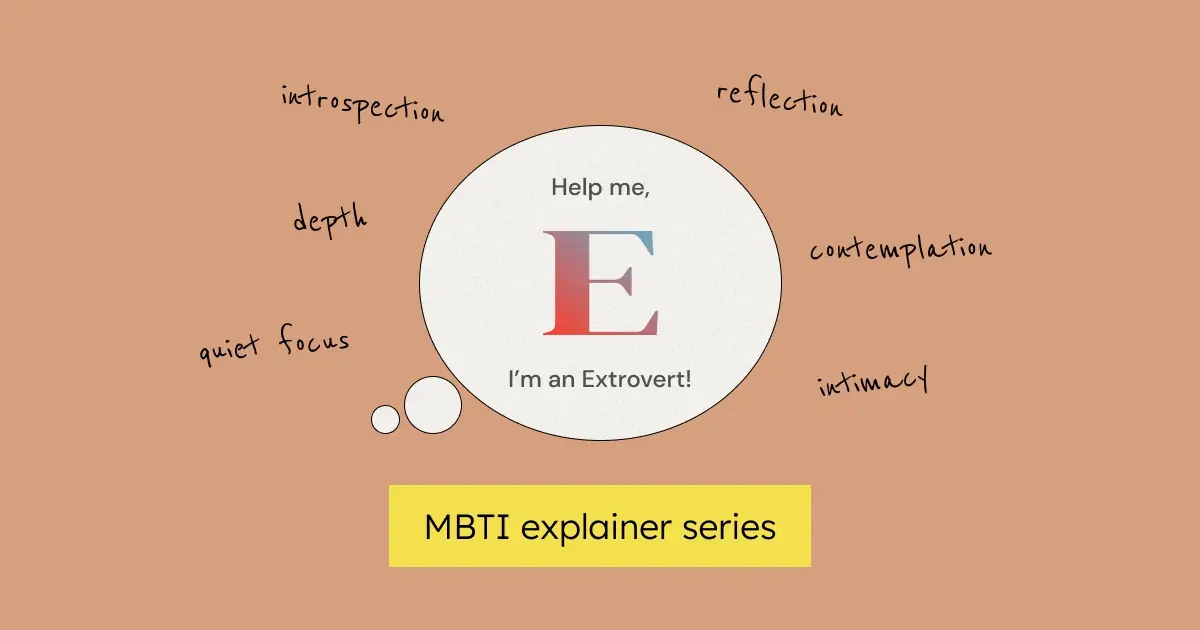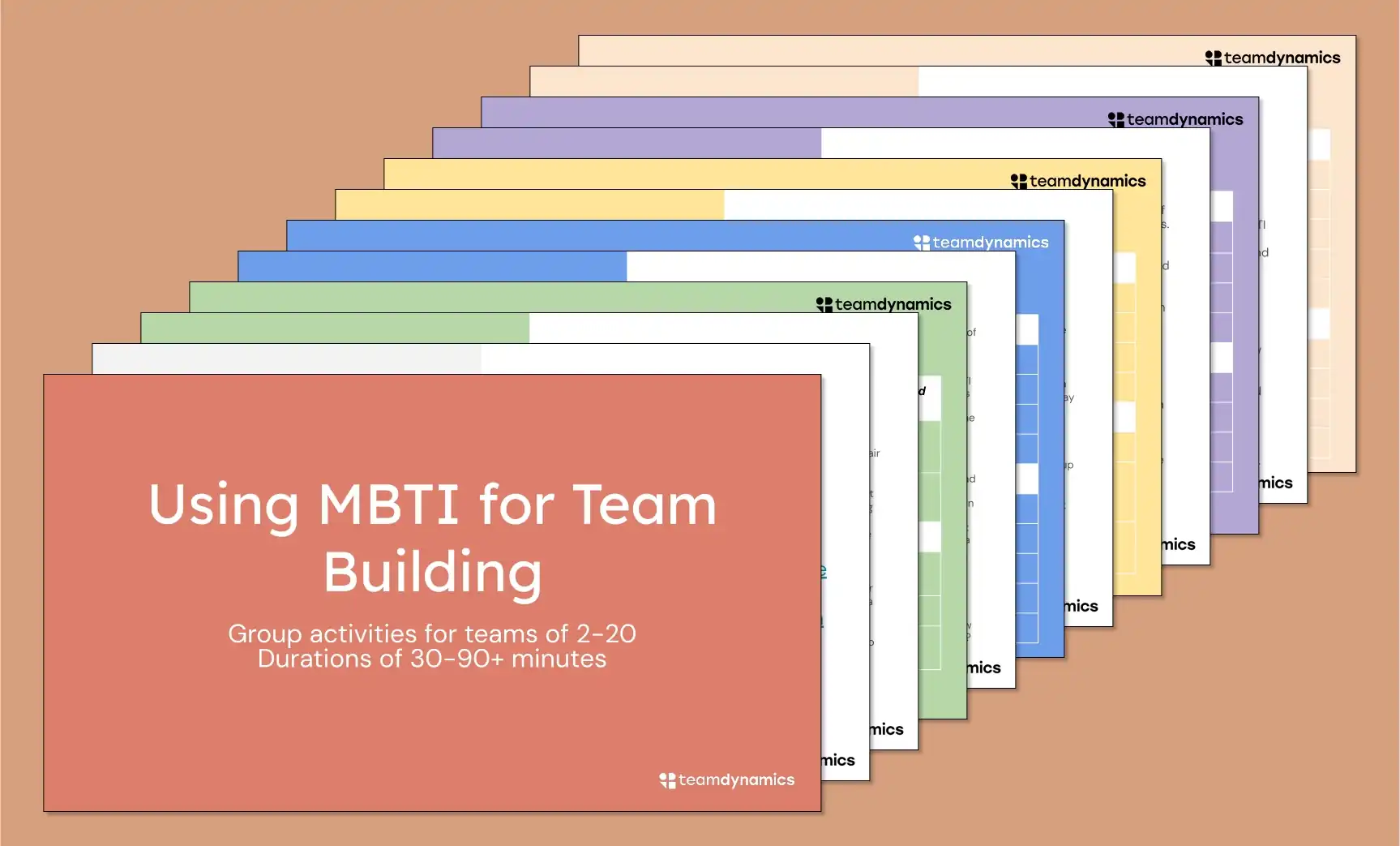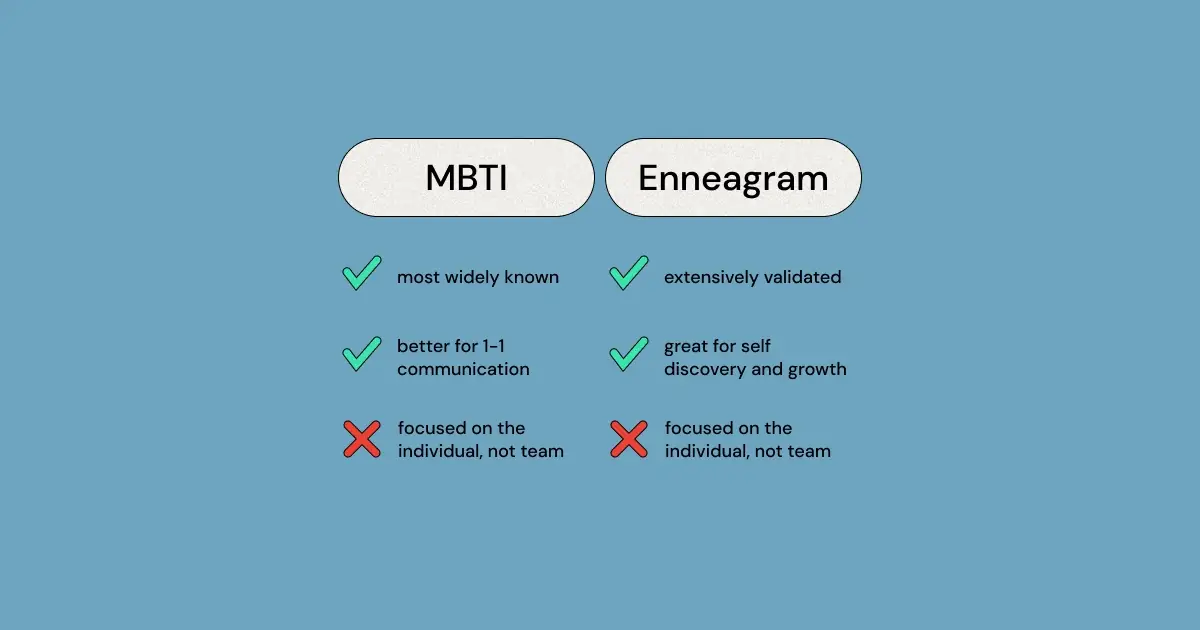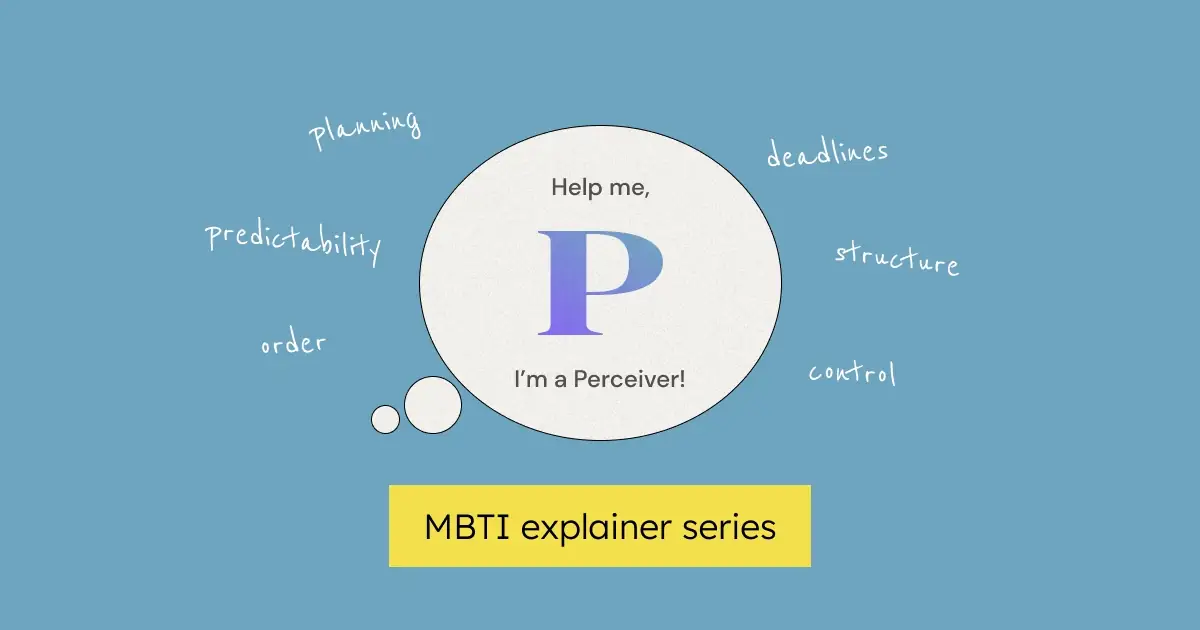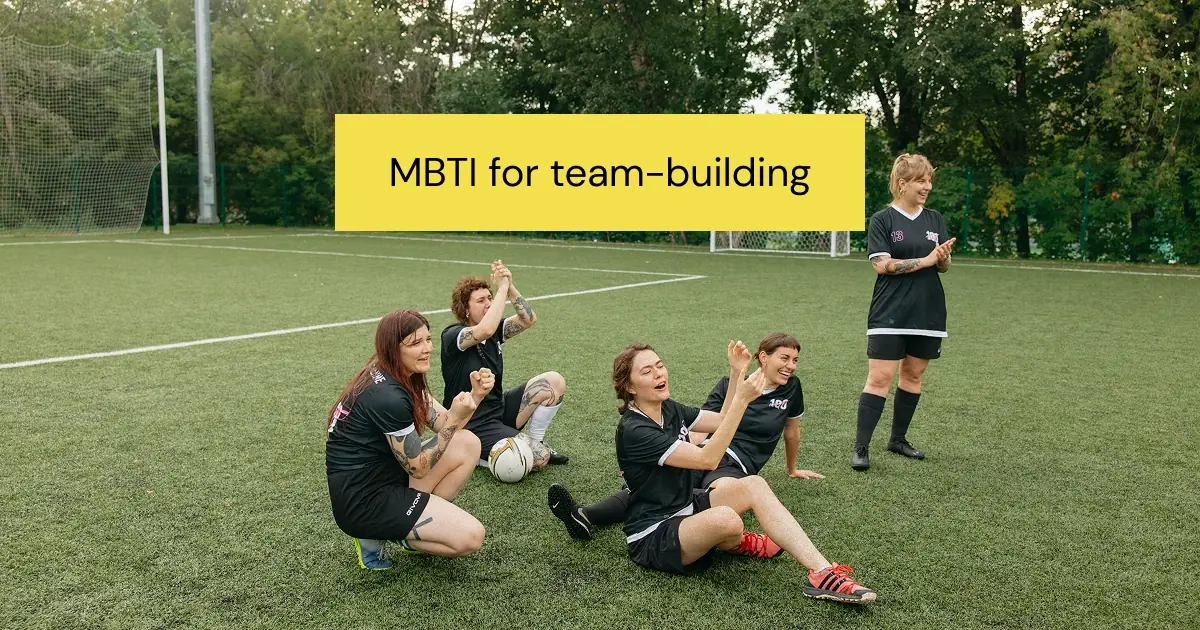Hello, fellow extroverts! Welcome to a new adventure where we dive deep into the world of MBTI, or the Myers-Briggs Type Indicator, and discover how we can better connect with our introverted team members at work.
You may be asking, what's the MBTI? It's a popular personality test that breaks down our psychological preferences and how we perceive the world. It's like having a map for human behavior. And why should you, a dynamic, outgoing extrovert, care about this? Simply put, it's a tool that can make your work life a whole lot easier.
Consider this: your team at work is a mix of personalities, and you're like the conductor of an orchestra. For the music (or in our case, the work) to flow beautifully, the conductor needs to understand each instrument and its unique sound. Similarly, understanding different personality types, like introverts, can lead to better team chemistry and smoother work operations.
But let's not get lost in metaphors. Our goal in this blog is to provide you with a practical guide to navigate the introvert-extrovert dynamic in your team. This isn't about changing who you are; it's about using your natural extroverted abilities to create an inclusive, productive, and happy work environment. So, ready to step up your team collaboration game? Let's dive in!
Stay tuned as we embark on this journey of understanding and celebrating the power of diversity in personality types within our teams. Together, we'll unlock the secret to harmonious and efficient workspaces, where both extroverts and introverts not only coexist but thrive.
Understanding the Extrovert
Let's start with us, the extroverts. According to the MBTI, extroverts are those who gain energy from interacting with the world around them. We love people, bustling environments, and lively discussions. We think out loud, process information through conversation, and often have a wide range of acquaintances. Being active and on the go is our comfort zone!
{{inline-cta}}
Imagine this: You're at work, and you're the person who's always ready to brainstorm in group meetings, the one who initiates lunch outings, and the colleague who enjoys tackling problems through energetic discussions. Sound familiar? That's because you're an extrovert!
Recognizing and acknowledging that you're an extrovert is crucial. It's like knowing you have a toolbox and understanding what each tool can do. For instance, your social energy can be a great tool to foster a positive work atmosphere.
However, remember that not everyone at work may share your enthusiasm for constant interaction. Some might prefer a quiet corner to social gatherings or choose written communication over a bustling meeting. This doesn't mean they're not team players, they're just playing a different instrument in our orchestra analogy from earlier. And that's where our introverted friends come into the picture.
In the next section, we'll get to know more about introverts, their working style, and how we, as extroverts, can make the music of team chemistry more harmonious. Stay tuned!
Understanding the Introvert
Introverts, according to the MBTI, are individuals who recharge by spending time alone. They value quieter, more minimally stimulating environments. If extroverts are energized by social interactions, introverts often find these same situations draining. This doesn't mean they're antisocial or shy, it's just that their energy expenditure works differently.
So, what does a typical introvert look like at work? Picture this: your colleague who prefers emailing over impromptu meetings or the team member who often enjoys lunch alone, not because they're unsociable, but because it helps them recharge for the rest of the day. They're the ones who might not speak up frequently in meetings, but when they do, their ideas are well-thought-out and insightful.
Why is it important for us extroverts to understand this introverted approach to work? Well, a team is like a puzzle, and each member is a unique piece. Recognizing that not all pieces fit the same way is key to seeing the big picture. For a well-functioning team, understanding that introverts may need some quiet time to process information or that they might communicate differently is crucial.
Recognizing and respecting these differences can lead to improved team chemistry. As an extrovert, your natural talent for fostering social connections can be a great asset in creating an inclusive environment that respects both extroverted and introverted styles.
In the next section, we'll delve into the potential challenges that might arise when extroverts and introverts work together and how to navigate them. It's all about striking the right chord for our team's symphony! So, stick around and let's continue our journey of understanding and collaboration.
Challenges Extroverts May Face When Working with Introverted Teams
Just like any team, a mix of extroverts and introverts can sometimes face challenges. These hiccups often arise from differing communication styles, energy levels, and work preferences. Let's explore some of the potential obstacles you, as an extrovert, might encounter when working with introverted teammates:
Misinterpretation of Quietness
As an extrovert, you might interpret an introvert's quiet nature as disinterest or lack of enthusiasm. For example, during a brainstorming session, an introverted colleague might not voice their ideas immediately, leading you to believe they're uninterested.
Mismatch in Communication Styles
You might prefer face-to-face meetings and discussions, while your introverted colleagues might be more comfortable expressing their ideas in writing or in smaller groups.
Energy Drain
High-energy social environments, which extroverts often thrive in, can be exhausting for introverts. A busy, bustling open office, which you find energizing, might drain your introverted coworker.
Differing Social Preferences
Team bonding activities like big social gatherings might feel overwhelming to introverted team members who typically recharge in quieter, less stimulating environments.
Any of these sound familiar?
Understanding these challenges comes from recognizing that your extroverted approach—though entirely natural to you—might not always align with an introvert's preferences. Your lively and active participation in work might seem too intense to a more reserved introvert. However, these challenges are not insurmountable!
In our next section, we'll discuss practical strategies you can use to effectively collaborate with your introverted team members, promoting team chemistry, and making sure everyone's voice is heard. Stay tuned and continue to be the proactive extrovert we know you are!
Strategies for Extroverts to Successfully Collaborate with Introverted Teams
Navigating the extrovert-introvert dynamic might seem challenging, but with some understanding and a few strategic changes, you can pave the way for excellent team chemistry. Here are some strategies for making your collaboration with introverts successful:
1. Develop Empathy
Put yourself in their shoes. Understanding the introvert's perspective is key to creating an inclusive environment. For instance, if a team member prefers to work alone during lunch, respect their need for quiet time. It's not that they're avoiding social interactions, they're just recharging for the tasks ahead.
2. Promote Individual Space
Everyone values their personal space, but for introverts, it's crucial. Try to minimize surprise visits to their desk or impromptu group discussions. An example could be creating quiet zones in your workplace or designating 'no interruption' time blocks where introverts can work undisturbed.
3. Balance Communication
While extroverts often enjoy thinking out loud, introverts tend to process internally before sharing their ideas. Encourage them to speak up by creating non-pressure environments. For example, instead of expecting immediate responses in meetings, share the agenda beforehand to give introverts time to prepare their thoughts.
4. Planning and Predictability
Introverts often appreciate planned, predictable environments. Spontaneous meetings or sudden changes can be stressful for them. Consider setting up a team calendar where meetings and events are planned in advance, giving everyone a heads up on what to expect.
Working with introverted teams isn't about changing who you are as an extrovert, but about using your natural abilities to create a harmonious environment that celebrates all personality types. In the end, the diversity in thought and approach in a team is its biggest strength.
In the next section, we'll discuss the amazing benefits that come with extrovert-introvert team collaboration. So, stay tuned and let's keep fostering that fantastic team chemistry!
Benefits of Extrovert-Introvert Team Collaboration
As we've been discussing, extroverts and introverts offer unique strengths to a team. When both types work together in harmony, they create a balanced and dynamic environment. Let's explore the potential benefits of extrovert-introvert team collaboration:
Diversity in Thought and Approach
Extroverts and introverts often have different ways of solving problems, leading to diverse ideas. For instance, while extroverts might brainstorm out loud, introverts tend to internalize and analyze before sharing their thoughts. This combination can lead to creative and comprehensive solutions.
Balanced Energy
Extroverts can bring a vibrant and enthusiastic energy to the team, while introverts can provide a calming and thoughtful presence. This balance can create a stable and pleasant working atmosphere.
Complementary Skills
Extroverts typically excel in fostering group dynamics, networking, and public speaking. On the other hand, introverts often shine in listening, deep thinking, and working independently. These skills complement each other beautifully in a team setting.
Enhanced Understanding and Empathy
When extroverts and introverts collaborate successfully, they gain a deeper understanding of each other's perspectives, fostering a more empathetic and inclusive work environment.
A fantastic example of a team that leverages extrovert-introvert dynamics is the famous Steve Jobs and Steve Wozniak duo of Apple Inc. Jobs, the extrovert, was the face of Apple, excelling in networking and public presentations. Wozniak, the introvert, preferred to stay in the background, focusing on the deep, focused work of developing technology. Their combined strengths led to one of the most successful companies in history!
Embracing the extrovert-introvert dynamic in your team can yield wonderful results. In the next and final section, we'll wrap up our guide and leave you with some parting thoughts. Stay tuned, and let's continue to build great team chemistry!
{{inline-cta}}
Conclusion
We've covered quite a bit in our journey of understanding the dynamics between extroverts and introverts in the workplace. From defining what it means to be an extrovert and introvert, to exploring the unique challenges and benefits of working together, our goal has been to shed light on the importance of understanding and embracing our differences.
As an extrovert, you bring so much energy, enthusiasm, and dynamism to your team. These are wonderful qualities that can truly make a difference. However, remember the importance of empathizing with your introverted teammates. Understand their need for quiet time, their communication preferences, and their love for predictability and planning. Most importantly, remember that your introverted colleagues are not just 'quiet' individuals but thoughtful, observant, and introspective teammates who bring depth and balance to the team.
Remember the story of Steve Jobs and Steve Wozniak? That's the kind of synergy we're aiming for! A balance of extroverted and introverted strengths that make the team much greater than the sum of its parts.
Finally, always cherish the diversity of your team. Different personality types, like different instruments in an orchestra, create a more beautiful symphony. Embrace these differences, learn from them, and leverage them to create a team that is harmonious, balanced, and simply brilliant!
In the end, extrovert or introvert, we're all part of the same team, striving for the same goals. And that, dear readers, is the true essence of fantastic team chemistry. Until our next post, keep embracing your extroverted energy and continue to foster understanding and harmony in your teams.
Keep shining, keep collaborating, and let's continue to make our workplaces more understanding and inclusive for everyone!
Check out our other MBTI resources!
We hope you've found this guide useful. Remember, everyone's experience is unique, and it's about finding strategies that work best for you. If you enjoyed reading this, don't keep it to yourself! Share it with your friends, colleagues, or anyone you think could benefit from it. Let's create a more understanding and inclusive workplace together!
MBTI is one of the most popular personality tests, and people are always asking us how they can better use it with their teams. Here are a few other useful articles you can try:
And if you're looking to crack the code on working with a specific MBTI type, check out our guides written just for you:
Interested in diving deeper into personality types, teamwork, and team performance? We've got a treasure trove of insightful articles just waiting for you to explore. Check out our other blogs on topics like team dynamics, effective communication strategies, and more in-depth dives into different personality tests. And check back often - we're always publishing more great content!


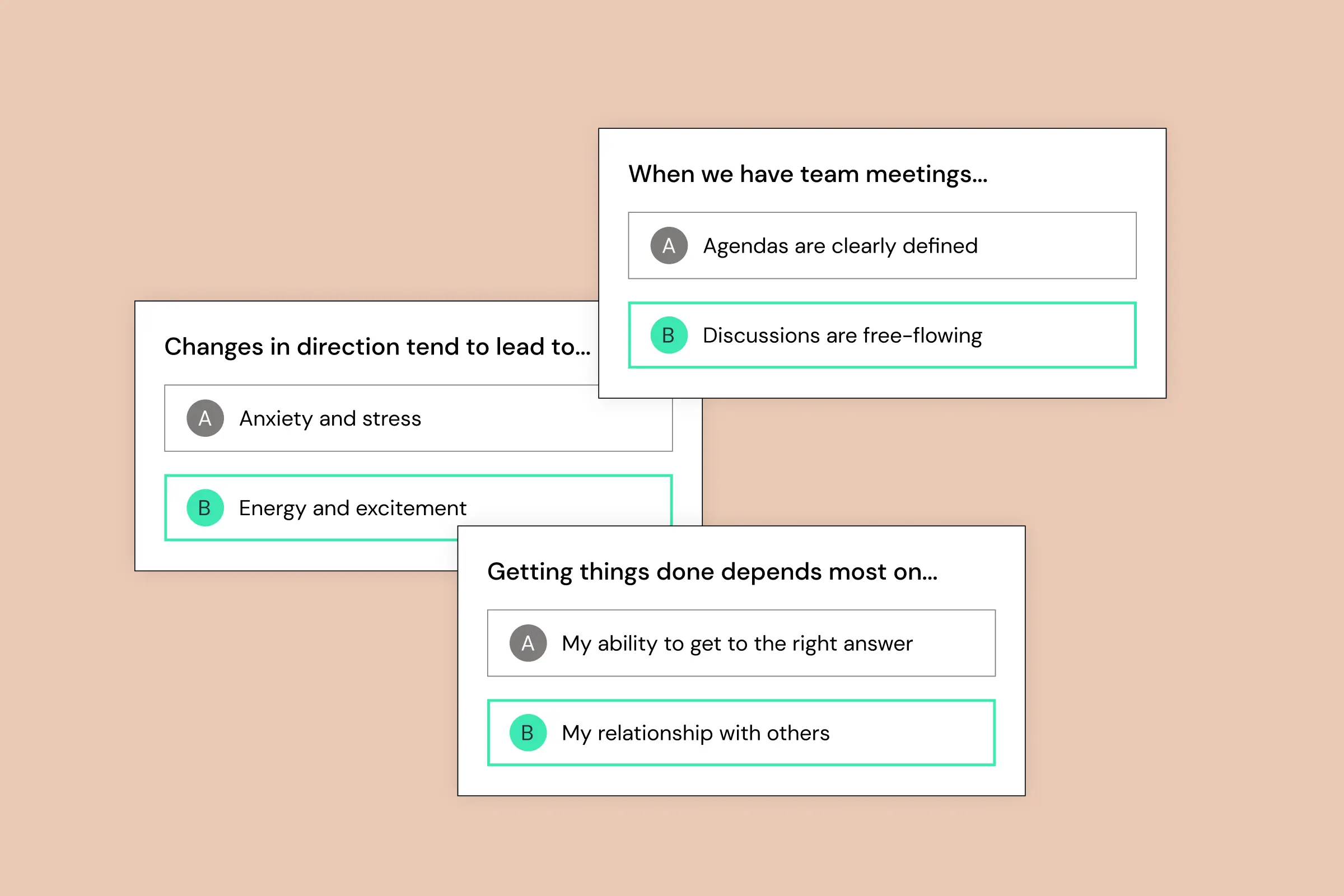

.png)
